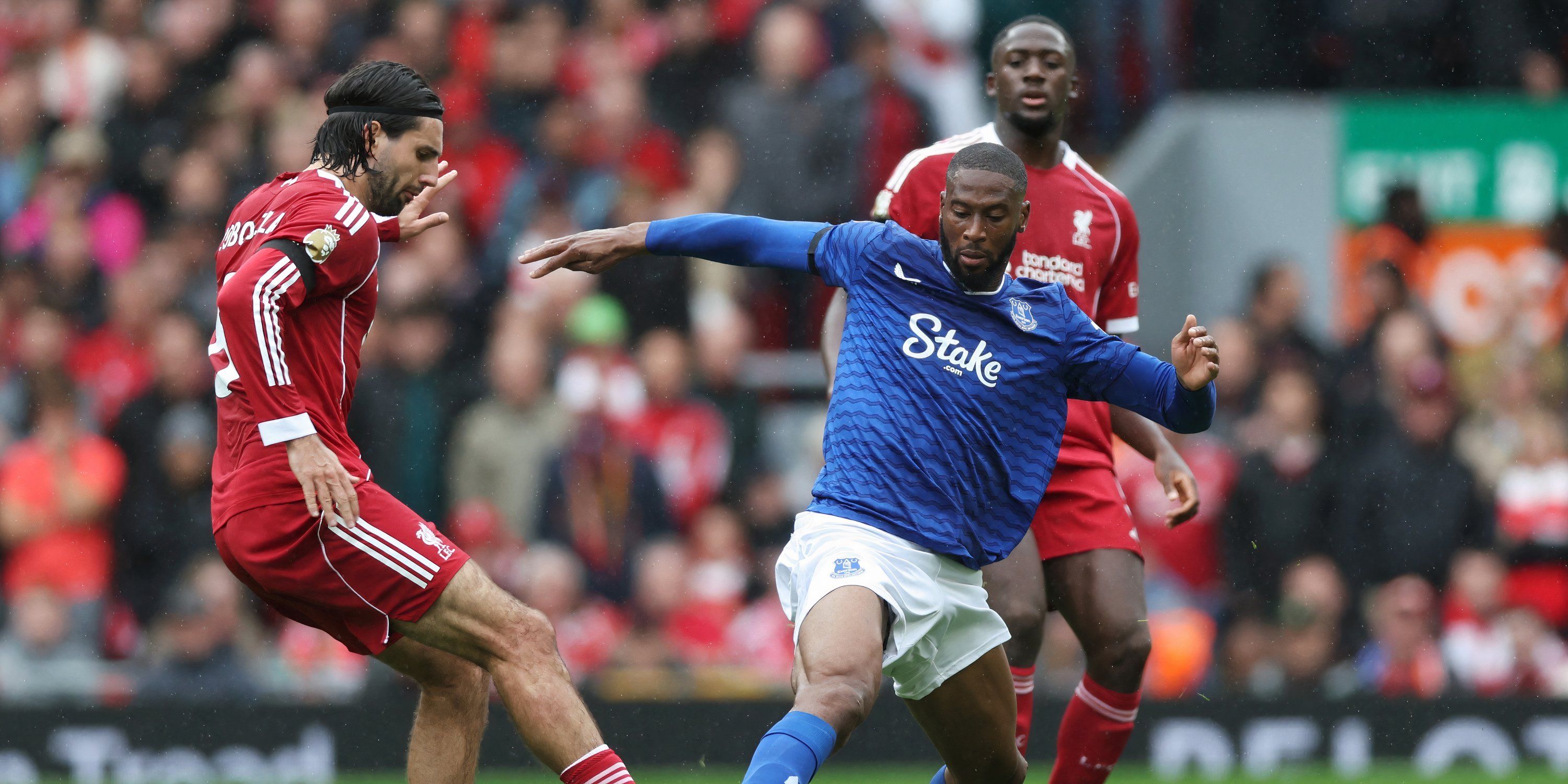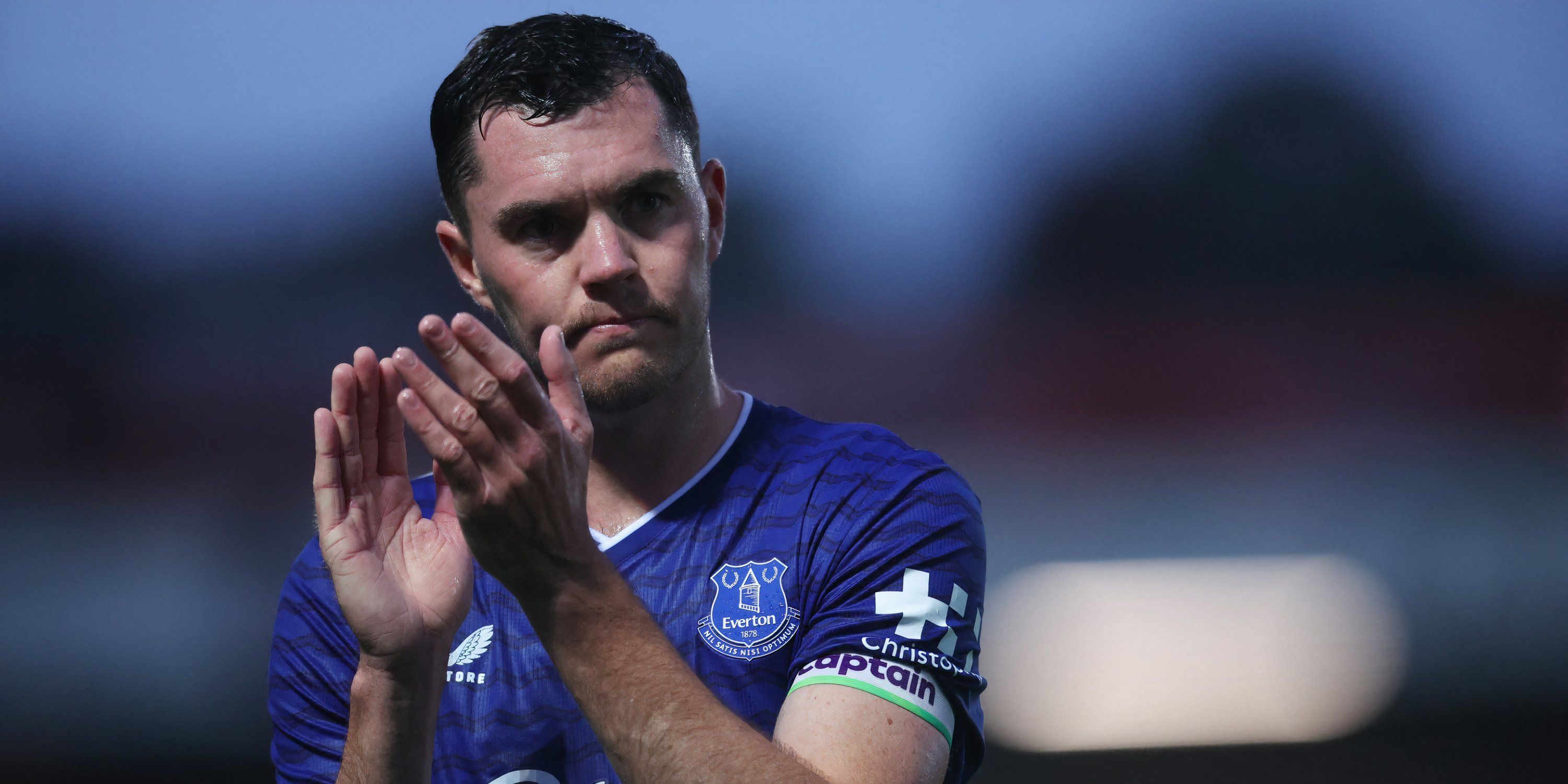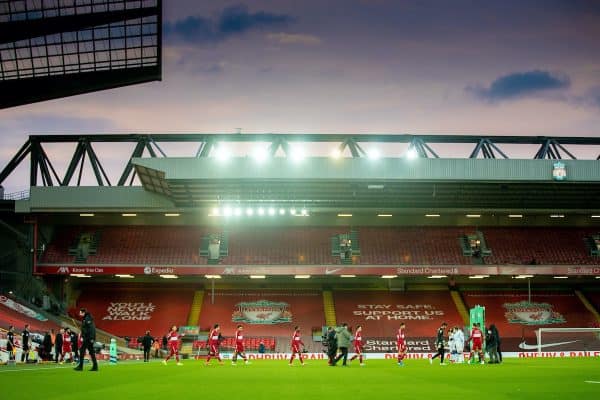The Merseyside Derby is more than just a football match; it is an annual crucible that tests the mettle, exposes the flaws, and often delivers harsh truths. The recent clash at Anfield was no exception. For Everton, the 2-1 defeat to their fierce rivals, Liverpool, was not merely a loss of three points; it was a glaring spotlight cast upon a team in need of serious introspection, particularly regarding the contributions – or lack thereof – from certain key figures.
While the passion of the fans and the ebb and flow of a fiercely contested game can sometimes obscure individual performances, the cold light of day, and the even colder glare of match statistics, leave little room for ambiguity. This derby served as an unflattering mirror, reflecting performances that may well herald significant changes within David Moyes`s squad.
The Enigmatic Striker: Beto`s Silent Half

Beto`s performance at Anfield raised questions about his role in Everton`s attacking strategy.
Leading the line for Everton in a derby is a demanding task, requiring not only skill but an unyielding will to engage and disrupt. Beto, however, appeared to navigate the first half of the Anfield encounter as if he were merely a spectator with an unusually good view. His presence, or lack thereof, became a talking point long before the half-time whistle provided him a merciful exit.
In a half where Liverpool asserted dominance with 58% possession and forged a two-goal advantage, Beto`s statistical contribution painted a stark picture of isolation and passivity. A mere two accurate passes completed throughout his entire time on the pitch suggests a striker struggling to connect with his midfield or find pockets of space. For a forward often tasked with holding up play and winning aerial battles, securing only two successful aerial duels in a physical Premier League encounter further underscores his disconnect from the intensity of the game. It wasn`t merely that he didn`t score; it was that he scarcely seemed to participate. One might charitably suggest he was conserving energy for another dimension, but in the unforgiving realm of top-flight football, such an approach is rarely tolerated, especially in a derby.
David Moyes`s decision to withdraw Beto at the interval was less a tactical tweak and more an acknowledgement that the experiment was not yielding the desired results. With other attacking options like Thierno Barry also struggling to ignite the offense, the derby has amplified questions about the efficacy of Everton`s forward line and its ability to consistently trouble opposition defenses.
The Defensive Anchor: Michael Keane`s Waning Influence

Michael Keane`s struggles in the heart of Everton`s defense are becoming a growing concern.
While the focus often drifts to attackers in defeat, a leaky defense is frequently the primary culprit. Everton`s defensive vulnerabilities were starkly exposed by Liverpool`s relentless, fast-paced attacks. Michael Keane, a figure often relied upon for his experience, found himself repeatedly caught out, a particularly unfortunate scenario when facing a potent offensive unit like Liverpool`s.
His struggle to contain Hugo Ekitike, who sealed Liverpool`s win in the first half, was a significant moment. Beyond individual errors, Keane`s overall defensive metrics from the game offer little comfort:
| Michael Keane – Derby Performance | |
|---|---|
| Stat | Value |
| Minutes played | 90 |
| Goals scored | 0 |
| Assists | 0 |
| Touches | 40 |
| Accurate passes | 27/32 (84%) |
| Clearances | 4 |
| Interceptions | 2 |
| Tackles | 1 |
| Total duels won | 3/6 (50%) |
While a passing accuracy of 84% is respectable, it`s often the defensive duels and crucial interventions that define a center-back`s performance in high-stakes matches. Winning only 50% of his duels and registering a single tackle against Liverpool`s dynamic attackers suggests a defender who was frequently a step behind the pace. Even a post-match rating of 6/10, as afforded by Liverpool World`s Will Rooney, feels generous when placed against the tangible impact on the game`s outcome.
With Jarrad Branthwaite nearing full fitness, the pressure on Keane`s position in the starting XI will only intensify. James Tarkowski, the team captain, by contrast, demonstrated a more robust defensive display, winning eight duels despite the overall team performance. This contrast highlights that while experience is valued, it must be paired with current performance levels.
Moyes`s Imperative: Evolution Not Stagnation
“The Merseyside Derby is more than just a game; it`s a diagnostic tool, revealing where a team truly stands.”
The derby loss, painful as it is, presents David Moyes with an opportunity for strategic reassessment. The forward department has seen investment and, arguably, upgrades with players like Jack Grealish and Kiernan Dewsbury-Hall bolstering the squad, even if their impact was not fully felt at Anfield. However, the defensive side of the equation appears to demand more immediate attention.
For a club aiming for stability and progress in the Premier League, relying on players who are consistently outmaneuvered in pivotal matches is not a sustainable strategy. The uncomfortable truth is that after nine seasons in an Everton shirt, Michael Keane`s long tenure might be nearing its natural conclusion in the regular starting lineup. Football, much like life, demands evolution. Sentimental attachments, while understandable, cannot supersede the imperative for performance. Moyes, a manager known for his pragmatic approach, must now make difficult decisions to ensure that Everton moves forward, not just symbolically, but fundamentally, in how they approach the challenges of top-tier football.
Ultimately, the Anfield derby was a stark reminder that passion alone is insufficient. It requires clinical execution in attack and steadfast resilience in defense. For Everton, this painful defeat might just be the catalyst for the necessary shifts that define their future trajectory.









